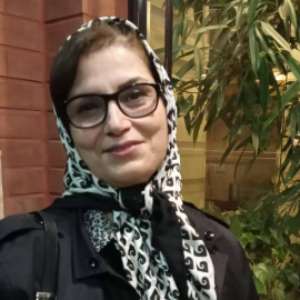Title : The effects of cognitive behavioral therapy with biofeedback therapy on the quality of life, anxiety, depression and somatic symptoms in patients with dyssynergic defecation: A randomized controlled trial
Abstract:
Background:
Dyssynergic defecation (DD) is a major cause of chronic functional constipation. Patients with DD have greater psychological distress and impaired health-related quality of life compared with the general population. This study aimed to evaluate the effectiveness of cognitive-behavioral therapy (CBT) combined with biofeedback therapy (BFT) on the quality of life, anxiety, depression and physical symptoms in patients with DD.
Methods:
This randomized controlled trial (IRCT20141115019957N2) was conducted on 45DD patients who were referred to the Rehabilitation Clinic of Iran University of Medical Sciences in 2017. The convenience sampling method was used to select the participants and then they were randomly allocated into three equal groups using RANDBETWEEN function in Excel. The first group received a combination of BFT&CBT and also standard-of-care therapy (SoCT). The second group was treated with BFT and SoCT, and the third group received only SoCT. The patients were assessed by digital rectal examination and the Short Form-36, Spielberger Anxiety, Beck Depression and Constipation Scoring System questionnaires before and after the treatment.The data were analyzed by SPSS-22, ANOVA, ANCOVA and Chi-Square tests.
Results:
Patients who received both CBT&BFT had significant improvement in symptoms of constipation, depression, and anxiety. Furthermore, BFT and CBT&BFT groups are valued equivalent only on the mental component of SF36 and the total SF36 questionnaire. But the physical component was significantly different, favoring CBT&BFT (p< 0.001). In CBT&BFT group,67%of patients reached the relaxed stage. In contrast, no patient reached the relaxed neither in BFT nor in SoCT.
Conclusion:
According to our study, patients with unfavorable responses to BFT may become better if CBT is added to their treatment plan.
Audience Take Away
- Chronic constipation (CC) is one of the most common digestive system disorders, which can negatively affect quality of life (QoL). One-third of patients with CC are reported to have dyssynergic defecation (DD) which has both psychological and physiological causes. According to the studies, although, biofeedback is an effective treatment for pelvic floor dyssynergia, it has not been helpful in DD patients with high grades of stress, anxiety or depression
- This study suggests the use of biofeedback therapy in combination with cognitive behavioural therapy, as an applicable effective therapeutic protocol, for patients with an unfavorable response to BFT alone
- This research can be the basis of further research in the field of the relationship between the brain and excretion disorders




